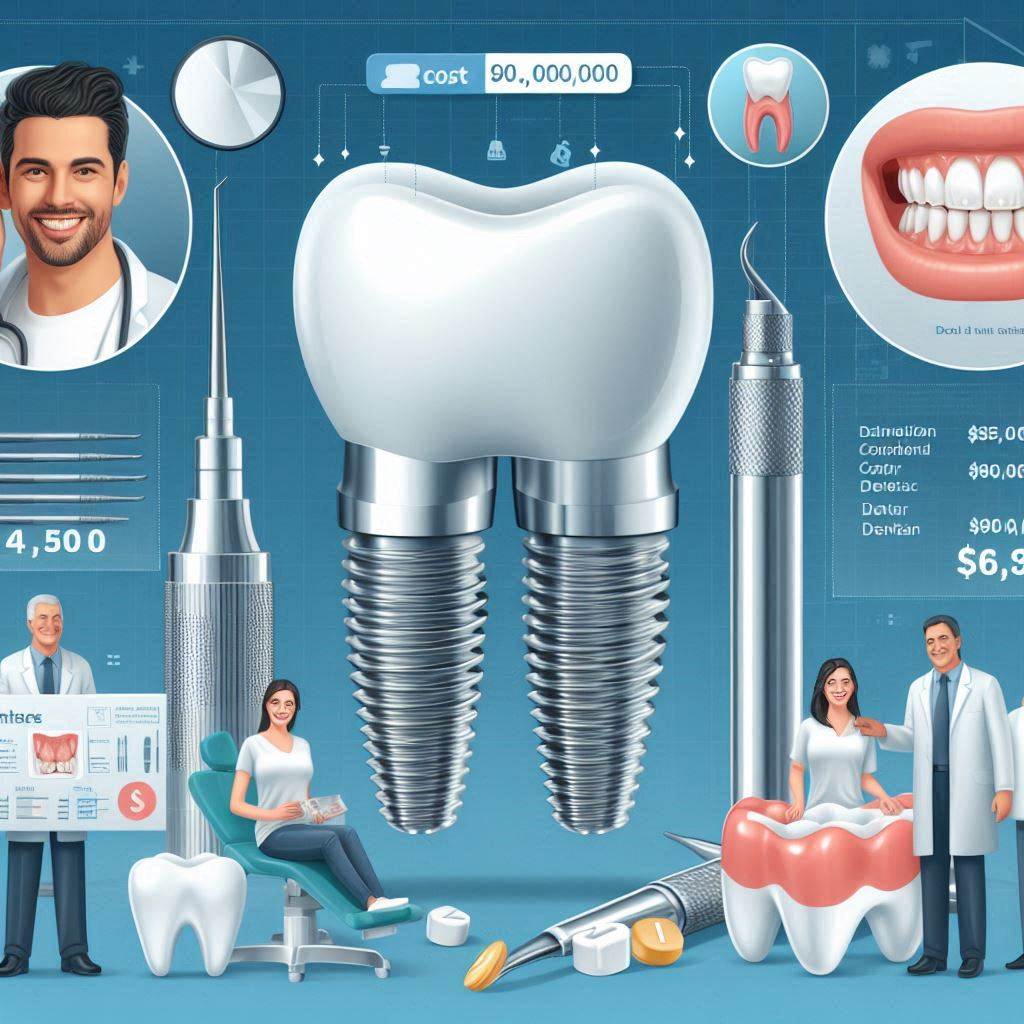Full Dental Implant Cost Range
Dental implants have revolutionized the field of dentistry, offering a permanent solution for missing teeth that looks, feels, and functions like natural teeth. However, one of the most common questions patients have is: How much do full dental implants cost? The answer is not straightforward, as the cost can vary significantly depending on numerous factors.
This article delves deep into the full dental implant cost range, providing a comprehensive guide to help you understand what influences the price, how to compare costs, and what to expect throughout the process. Whether you’re considering dental implants for yourself or a loved one, this guide will equip you with the knowledge to make an informed decision.

2. What Are Dental Implants?
Dental implants are artificial tooth roots made of biocompatible materials like titanium. They are surgically placed into the jawbone to support replacement teeth, such as crowns, bridges, or dentures. Unlike traditional dentures, dental implants are fixed in place, providing superior stability, comfort, and functionality.
Key Components of Dental Implants:
- Implant Post: The screw-like structure that acts as the root.
- Abutment: The connector that attaches the implant post to the replacement tooth.
- Crown/Bridge/Denture: The visible part of the implant that mimics natural teeth.
3. Types of Dental Implants
There are several types of dental implants, each suited to different needs and budgets:
- Endosteal Implants: The most common type, placed directly into the jawbone.
- Subperiosteal Implants: Placed under the gum but above the jawbone, ideal for patients with insufficient bone density.
- All-on-4 Implants: A full-arch restoration using only four implants per arch.
- Mini Dental Implants: Smaller in size, often used for stabilizing lower dentures.
4. Factors Influencing the Cost of Full Dental Implants
The cost of full dental implants can range from 3,000to3,000to60,000 or more, depending on the following factors:
a. Number of Implants Needed
The more teeth you need to replace, the higher the cost. Full-mouth implants typically require 4 to 8 implants per arch.
b. Type of Implant
Premium materials and advanced technologies (e.g., zirconia implants) cost more than standard titanium implants.
c. Geographic Location
Dental implant costs vary by region and country. For example, implants in urban areas or developed countries tend to be more expensive.
d. Dentist’s Expertise
Experienced specialists may charge higher fees due to their skill and reputation.
e. Preparatory Procedures
Some patients require additional treatments like bone grafts, sinus lifts, or extractions, which add to the overall cost.
f. Prosthetic Type
The choice of crowns, bridges, or dentures affects the final price. Custom-made prosthetics are more expensive.
5. Full Dental Implant Cost Range Chart
Below is a detailed cost breakdown for full dental implants:
| Component | Cost Range |
|---|---|
| Single Implant | 1,500−1,500−6,000 |
| Full Arch (All-on-4) | 15,000−15,000−30,000 per arch |
| Full Mouth (Upper & Lower) | 30,000−30,000−60,000+ |
| Bone Graft | 500−500−3,000 per site |
| Sinus Lift | 1,500−1,500−5,000 |
| Abutment | 300−300−500 |
| Crown | 1,000−1,000−3,000 per tooth |
6. Full Dental Implant Cost Range Comparison
a. By Country
- United States: 30,000−30,000−60,000+
- Mexico: 10,000−10,000−20,000
- India: 7,000−7,000−15,000
- Thailand: 8,000−8,000−18,000
b. By Implant Type
- Traditional Implants: Higher cost due to multiple surgeries and longer treatment time.
- All-on-4 Implants: More affordable for full-arch restoration.
7. Breakdown of Costs: What You’re Paying For
Understanding the cost components can help you budget effectively:
- Consultation and Diagnostics: 100−100−500
- Surgical Fees: 1,000−1,000−3,000 per implant
- Prosthetic Fees: 1,000−1,000−3,000 per tooth
- Follow-Up Care: 200−200−1,000
8. Insurance and Financing Options
a. Dental Insurance
Most insurance plans cover a portion of the cost, but coverage varies. Check with your provider for details.
b. Financing Plans
Many dental clinics offer payment plans or work with third-party financing companies like CareCredit.
9. How to Choose the Right Dental Implant Specialist
- Look for board-certified prosthodontists or oral surgeons.
- Read patient reviews and ask for before-and-after photos.
- Schedule consultations to compare quotes and treatment plans.
10. Risks and Benefits of Full Dental Implants
Benefits:
- Improved appearance and confidence.
- Enhanced chewing and speech.
- Long-lasting solution (20+ years with proper care).
Risks:
- Surgical complications (e.g., infection, nerve damage).
- High upfront cost.
- Requires healthy bone density.
11. FAQs
Q1: How long do dental implants last?
A: With proper care, dental implants can last 20-30 years or more.
Q2: Does insurance cover dental implants?
A: Partial coverage may be available, but it depends on your plan.
Q3: Are dental implants painful?
A: The procedure is performed under anesthesia, so discomfort is minimal.
Q4: Can I get dental implants if I have bone loss?
A: Yes, but you may need a bone graft or sinus lift first.
12. Conclusion
Full dental implants are a life-changing investment in your oral health and overall well-being. While the cost can be significant, the long-term benefits often outweigh the expense. By understanding the factors that influence pricing and exploring financing options, you can make an informed decision that suits your needs and budget.


